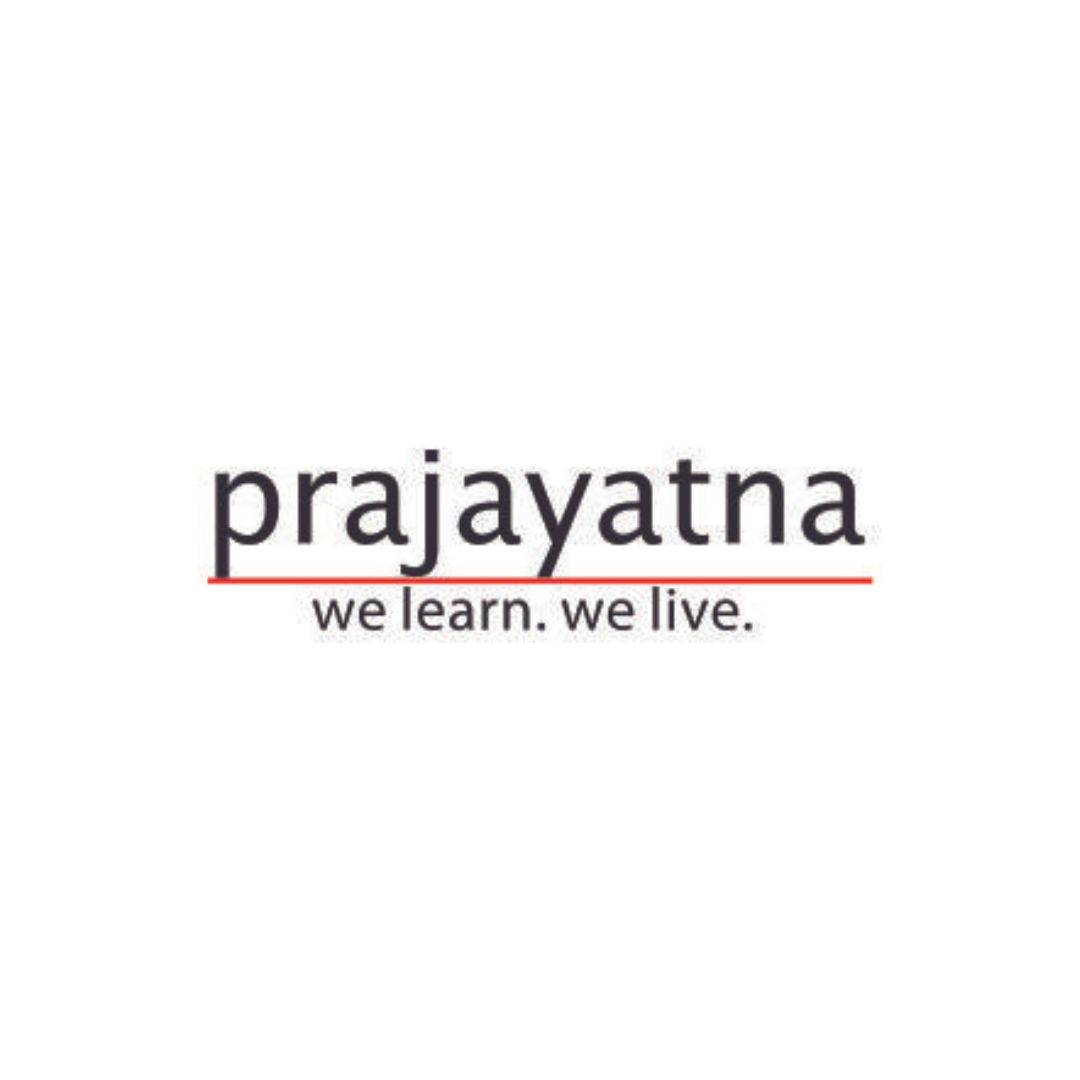Cause Area
Primary Sectors
Secondary Sectors
Financials
-
2021
Total IncomeRs.10,509,830Total ExpensesRs.10,536,785Non Program ExpensesRs.1,389,834Program ExpensesRs.9,146,951Tip: Click on any value above to exclude it. -
2022
Total IncomeRs.17,771,004Total ExpensesRs.16,729,103Non Program ExpensesRs.1,718,171Program ExpensesRs.15,010,932Tip: Click on any value above to exclude it. -
2023
Total IncomeRs.20,381,085Total ExpensesRs.20,710,640Non Program ExpensesRs.2,565,542Program ExpensesRs.18,145,098Tip: Click on any value above to exclude it. -
2024
Total IncomeRs.11,192,979Total ExpensesRs.12,086,508Non Program ExpensesRs.3,075,112Program ExpensesRs.9,011,396Tip: Click on any value above to exclude it.
Geographies Served
Programs
-
Kalikayatna - Quality Learning Initiative
District
Bahraich
Chitrakoot
Yadagiri
States
Karnataka
Uttar Pradesh
Prajayatna intends to address low learning levels of children in primary schools (Std 1 to 5) through the child-centric pedagogy developed by the organization which looks at the holistic development of the children. It is seen that such a learning approach is required to make the
children interested in the process of learning. The advantages of such learning need to be seen
and understood by the community in order to prevent migration of the children in the short run
and ensure a better quality of life in the long term. There is also a need to mitigate the effects of
the COVID-19 pandemic by ensuring that the learning gaps are filled and the children are
supported to learn further. -
Early childhood care and Education - Transformation of Anganwadis
District
Bangalore
Bahraich
Chitrakoot
States
Karnataka
Uttar Pradesh
Prajayatna began addressing ECCE concerns in 2000 by setting up child care centers in low-income areas near Bangalore. These centers aimed to keep older children in school, as many were dropping out to care for younger siblings due to the absence of quality ECCE facilities.
Recognizing the need to improve existing Anganwadis, Prajayatna partnered with the Department of Women and Child Development in Karnataka to involve communities in
managing these centers. Prajayatna’s work in ECCE began in 2009 and extended to 500
Anganwadis across six districts. In 2022, Prajayatna expanded its efforts to Uttar Pradesh to create quality learning environments for children, especially during the COVID-19 pandemic. Presently working 187 anganwadis across UP and Karnataka.
Impact Metrics
-
Number of Anganwadis
Program Name
ECCE - Transformation of Anganwadis
Year-wise Metrics- 2022-23 187
-
Number of Schools Impacted
Program Name
Kalikayatna - Quality Learning Initiative
Year-wise Metrics- 2021-22 8000
- 2022-23 9600
-
Number of Children Impacted
Year-wise Metrics- 2022-23 93234
-
Number of Teachers Impacted
Year-wise Metrics- 2022-23 2452
Registration Details
-
PAN Card
AAAAP8812C
-
Registration Number
107/2007-08
-
CSR Form 1
CSR00006734
-
80G
AAAAP8812CF20214
-
12A
AAAAP8812CE20214
-
FCRA
094421453
About
-
Headquarters
Bangalore, Karnataka
-
Since
2000
Impact
Impact of the organization - Have worked with more than 10000 schools and 4000 GPs for the decentralization of education governance in 6 states, namely, Karnataka, Uttar Pradesh, Jharkhand, Rajasthan and Andhra Pradesh and Telangana; and trained as many SMC and GP representatives. - Worked with 150 schools in the implementation of Kalikayatna – A quality learning initiative reaching 8000 children in Karnataka and Uttar Pradesh - Initiated 200 preschools in low-income areas of which 60 of them have been converted to anganwadis. - Have worked with 650 anganwadis in Karnataka and Jharkhand and reached out to 15000 children. Presently working with 185 Centres reaching out to 4000 children in Karnataka and Uttar Pradesh. - Worked with self-help groups in Jharkhand to empower them to address issues of education and strengthen the governance of the schools, thereby ensuring quality education for all children. - Redefined our learning approach truly inclusive by ensuring that children with disabilities are part of the learning process.
Vision and Mission
Prajayatna's vision is to create a society that enables every child to live and thrive with dignity, while its mission is to facilitate systemic reform towards quality education by developing an inclusive and competency-based approach to learning in a conducive ecosystem.
Political & Religious Declarations
-
Political Affiliation
-
Religious Affiliation
Location
-
Offices in Cities
Other Details
-
Type
Non-profit
-
Sub Type
Society
Website
Technology Adoption
-
SOC 2 Compliant
No
-
Financial Management
-
Beneficiary Management



